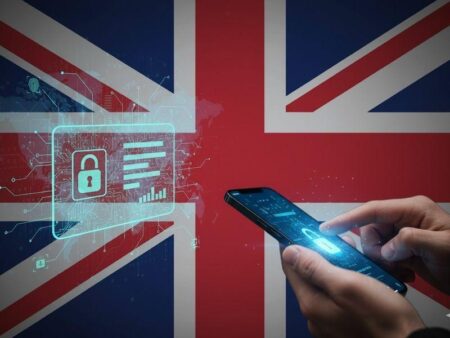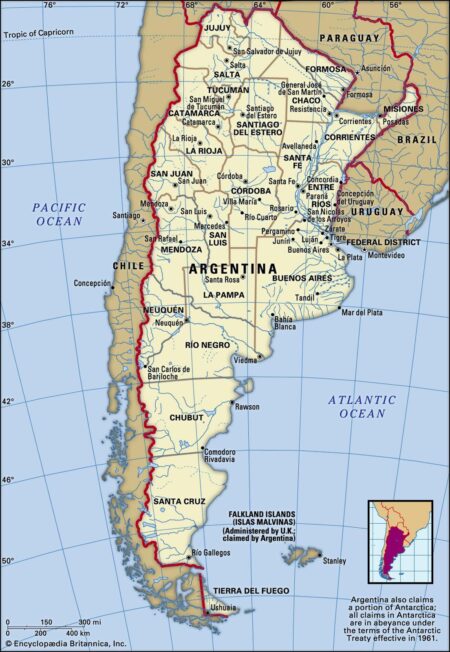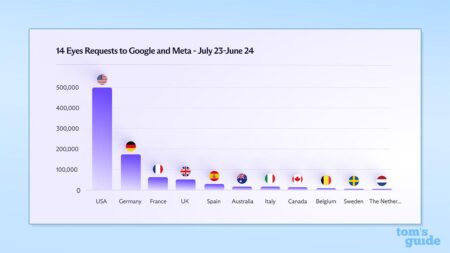Israel has blocked Spain’s judicial inquiry into the Pegasus spyware scandal, citing national security concerns. This move disrupts Spain’s efforts to uncover the truth behind allegations of surveillance targeting officials, journalists, and activists
Browsing: privacy
Prince Harry has made a dramatic return to the UK for the opening day of his high-profile tabloid court case. This highly anticipated hearing, watched closely by the media, marks a crucial moment in his relentless battle against press intrusion
India has requested access to the iOS source code to enhance data security, but Apple remains firm, denying the request to uphold its strong commitment to user privacy and platform protection. This growing standoff is escalating tensions between the tech giant and Indian regulators
Apple has been hit with a hefty fine in Italy over its handling of an iPhone privacy feature. Authorities claim the company failed to provide clear information, leading to this major penalty
Italy’s data protection authority has boldly challenged Apple’s App Tracking Transparency rules, claiming they may unfairly restrict app developers and violate competition laws. This showdown ignites a vital debate on finding the right balance between user privacy and fair market competition
China’s already stringent censorship and surveillance systems are being turbocharged with cutting-edge AI technology, enabling lightning-fast data analysis and even tighter control over online content-igniting new concerns about privacy and freedom
The UK’s plan for digital ID has set off major privacy and security alarms, warns the Electronic Frontier Foundation. Critics warn it could pave the way for mass surveillance and rob users of control over their personal data
The UK government has unveiled an exciting new Digital ID scheme set to revolutionize online verification, making it faster and easier than ever before. Newland Chase highlights its potential to enhance security while delivering smoother, more convenient access to services nationwide
Australia’s plan to introduce age verification for search engines has ignited major privacy and inclusion debates, raising fears about user data exposure and creating fresh barriers to accessing essential information
US lawmakers are raising urgent concerns about the UK’s aggressive stance on Apple’s encryption, warning that this move could put user privacy and overall tech security at serious risk. This intense debate highlights the growing clash between safeguarding digital privacy and granting law enforcement greater access
Argentina’s president strongly dismisses claims that the new intelligence plan targets journalists and politicians, emphasizing instead its real mission: boosting national security and enhancing transparency-despite rising public worries
Italy’s data protection authority has slapped a hefty $5.6 million fine on Replika’s developer for violating privacy regulations. This significant action underscores the growing unease surrounding AI applications and how they manage user data, especially as tech companies face heightened scrutiny
The U.S. government is calling on Google to reveal user data, spotlighting its recent acquisition of Yahoo Japan. Officials argue that this significant deal highlights the urgent need for increased transparency in how tech giants handle data, all in pursuit of stronger regulatory compliance.
The White House clarified that Steve Witkoff, a prominent real estate developer, did not utilize the encrypted messaging app Signal during his recent trip to Russia. This statement comes amid scrutiny over communications by U.S. business figures abroad.
Signal has issued a warning that it may exit the French market if the government mandates encryption backdoors for messaging apps. The company emphasizes that such measures undermine user privacy and security, sparking a debate on data protection in Europe.
France and Germany have launched Docs, a new homegrown alternative to Google Docs, aimed at enhancing digital sovereignty and privacy in Europe. This collaborative effort seeks to provide users with a secure platform for document creation and sharing.
The Paragon scandal reveals that Denmark and Cyprus are potential customers for surveillance technology alongside Italy. This development raises concerns over the ethical implications of spyware use and its impact on privacy rights across Europe.
Telegram founder Pavel Durov has been granted permission to exit France despite facing legal charges. The decision allows him to continue his global expansion efforts, while the legal proceedings surrounding him remain unresolved.
A former Facebook director has alleged that the social media giant “worked hand in glove” with the Chinese government, raising concerns about data privacy and influence. This claim adds to ongoing scrutiny of tech companies’ ties to foreign powers.
Apple is challenging the U.K. government’s demand to weaken encryption technologies, arguing that this would compromise user privacy and security. The tech giant emphasizes that robust encryption is crucial for protecting personal data against cyber threats.



















